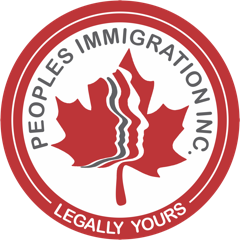- have a well-founded fear of persecution or
- are at risk of torture, or cruel or unusual punishment in their home countries
Help for resettled refugees
Under the Resettlement Assistance Program, the Government of Canada helps government-assisted refugees with essential services and income support once they are in Canada. This helps them to settle.
The refugee gets this income support for up to one year or until they can support themselves, whichever comes first.
Private sponsors must provide financial and emotional support to any refugees they sponsor:
- for the length of the sponsorship period, or
- until the refugee can support themselves, if this happens during that period
The sponsor’s support includes help with housing, clothing and food. Most sponsorships last for one year, but some refugees may be able to get help from their sponsors for up to three years.
Blended visa office-referred refugees get six months of Resettlement Assistance Program income support. Private sponsors give up to six months of financial support and up to a year of social and emotional support.
How to Resettle in Canada as a refugee
Determine your eligibility
To come to Canada as a refugee, you must be referred. The United Nations Refugee Agency (UNHCR), a designated referral organization, or a private sponsorship group can refer you. You cannot apply directly to us as a refugee.
To be referred, you must fall into one of these two refugee classes.
1) Convention refugee abroad classYou may be in this class if you:
- are outside your home country,
- cannot return there due to a well-founded fear of persecution based on
- race
- religion
- political opinion
- nationality, or
- membership in a particular social group. Examples: gender, sexual orientation, etc.
Convention refugees can be sponsored by:
- the Government of Canada
- a group of people or an organization
- a mix of both
You can also be a Convention refugee if you have the funds needed to support yourself and your family after you arrive in Canada. You will still need the UNHCR, a referral organization, or a private sponsorship group to refer you.
2) Country of asylum class
You may be in this class if you:
are outside your home country, or the country where you normally live, and
have been seriously affected by civil war or armed conflict, or
have been denied basic human rights on an ongoing basis.
Country of asylum class refugees can be privately sponsored. You can also be in this class if you have the funds you need to support yourself and your family after you arrive in Canada. You will still need the UNHCR, a referral organization, or a private sponsorship group to refer you.
Refugee Claims Within Canada
TheCanada Border Services Agency (CBSA)decides if you areeligibleto make a refugee claim in Canada. If you are determined “not eligible,” you may haveother options.
Refugee Claims Outside of Canada
People who are sponsored by the government or by a private group to come to Canada are calledresettled refugees.People in this category are granted permanent residency when they arrive in Canada.
Refugee claims in Canada
A person fleeing persecutionwhois at Canada’s borders or within the country can ask for Canada’s protection by making a refugee claim.
The claim process has three main steps:
1.Eligibility.A claim is not eligible if the claimant:
- made a previous refugee claim in Canada.
- has refugee status in another country.
- arrivedat the US-Canada border
- is inadmissible on certain security and criminality grounds.
2. Refugee determination
Eligible claims are referred to theRefugee Protection Division of the Immigration and Refugee Board, which determines whether the claimant:
- is a Convention refugee; or
- faces a danger of torture, or
- faces a risk to theirlife or of cruel and unusual treatment or punishment and the risk is not generally faced by others and is not caused by inadequate health care.
- If the IRB accepts the claim, the claimant becomes a Protected Person and can apply for permanent residence. They can include on the application immediate family members overseas.
Canada has legal obligations towards refugees in Canada, the most important is the obligation not to send them back to face persecution.

